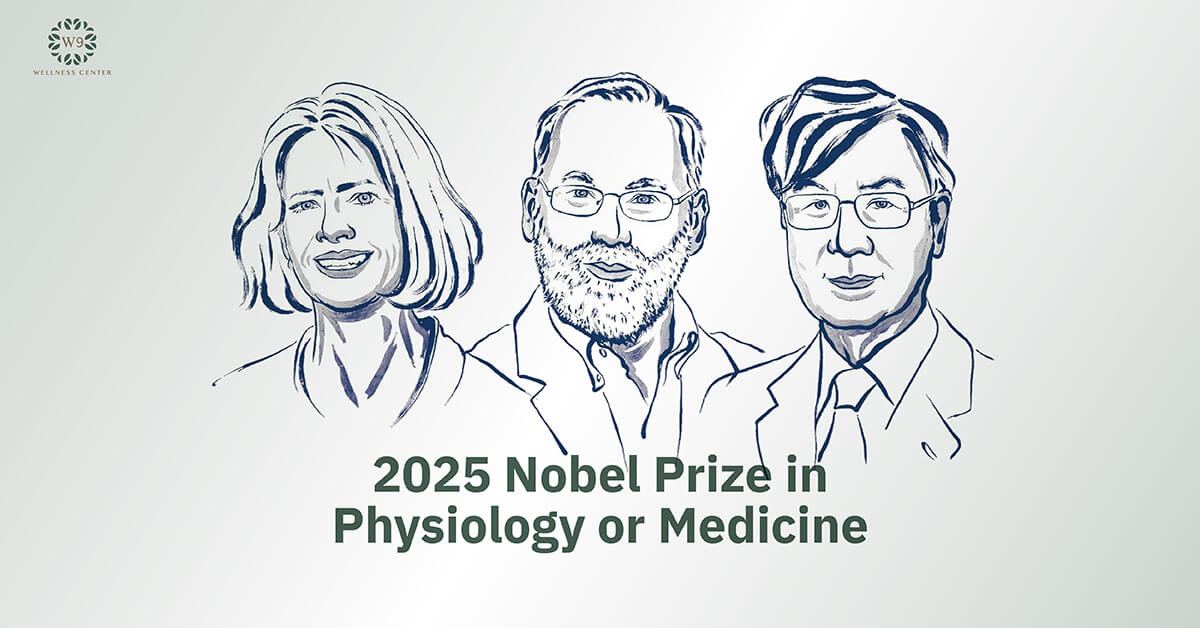
When the immune system learns to “not harm itself” Behind the human immune system is a “brake mechanism” that prevents the body from unknowingly attacking itself, and this year Nobel Prize in Medicine 2025 The discovery of the mechanism, which is at the heart of “peripheral immune balance,” has been hailed. Peripheral Immune Tolerance
On the date October 6, 2025 At the institute Karolinska Institutet Sweden has announced the award for Dr. Mary Brunkow, Dr. Fred Ramsdell and Dr. Shimon Sakaguchi For work that reveals a key mechanism that allows our immune system to distinguish between “the enemy” and “our own body.”
This discovery helps explain why our bodies don't overdo it on themselves and lays the foundation for future drug development and treatments for autoimmune diseases, including cancer.
In 1995 Shimon Sakaguchi He discovered a type of cell in the immune system that acts as a “control” against unnecessary overreactions. He called this cell Regulatory T cells (Tregs)
Later in 2001 Mary Brunkow and Fred Ramsdell It was discovered that a gene called FOXP3 It is a key regulator of Tregs development and function. When this gene is mutated, the body loses its regulatory mechanism, resulting in severe autoimmune diseases such as: IPEX Syndrome
Two years later, Sakaguchi confirmed that FOXP3 is indeed the gene that defines the identity of Tregs.
Let the world know that the human immune system has not only “attack mechanisms” but also “inhibition mechanisms” that help maintain the body’s balance.
The work of the three scientists has opened the door to a new approach to medicine that focuses on “balancing the immune system” rather than simply suppressing or stimulating one aspect.
The discovery of “peripheral immune balance” has thus become a crucial foundation for developing more detailed and precise treatment approaches.
“Nobel Prize in Medicine 2025 Refers to a mechanism called Peripheral Immune Tolerance Or, to put it simply, it's the body's way of controlling the immune system so that it doesn't attack itself.”
“This mechanism involves a type of white blood cell called Regulatory T cells (T-regs)
It's like the game controller of the immune system, preventing white blood cells from overworking. If this system is out of balance, autoimmune diseases like SLE or rheumatoid arthritis can occur.
This discovery is therefore an important step forward, helping the medical community better understand immune regulation mechanisms. From a wellness medicine perspective, we have found that balancing T-regs can truly benefit overall health. This includes nutritional therapies, vitamin supplements, and even the use of extracts or cell-based therapies that help restore optimal immune function.
Although this research took place in a molecular lab, its principles clearly reflect key concepts in the world of wellness. In real life, “immune balance” is not only determined by genetics, but is also influenced by everyday factors such as:
Current health care approaches therefore focus on restoring balance in various systems, from the immune system, hormones, to intestinal microflora, so that the body can protect itself in a balanced way. Not more, not less
This year's discoveries reflect a new approach to medicine, emphasizing personalized care. This approach focuses on understanding the underlying mechanisms at the gene and cellular level to restore balance to the body from the ground up. This is where science and wellness meet. The goal is not just to "treat when you're sick," but to "keep your body in balance starting today."
Summary of the 2025 Nobel Prize in Medicine It's more than just a tribute to three scientists.
But it is a confirmation that “good health” comes from “immune balance,” and has inspired the medical community worldwide to move towards a more holistic and balanced approach to health care.
Because in the end, good health doesn't come from maximizing immunity, but from maintaining the optimal "immune balance."
Praram 9 Hospital (3rd floor, Building A)
Anti-aging and preventative medicine physician
W9 Wellness Center
References
Smoking causes adverse effects on the health of people around the world. In 2017, it was found that smoking killed almost all people.
Insomnia, poor sleep, not enough sleep are health problems for people in today's era that are becoming more and more severe day by day.